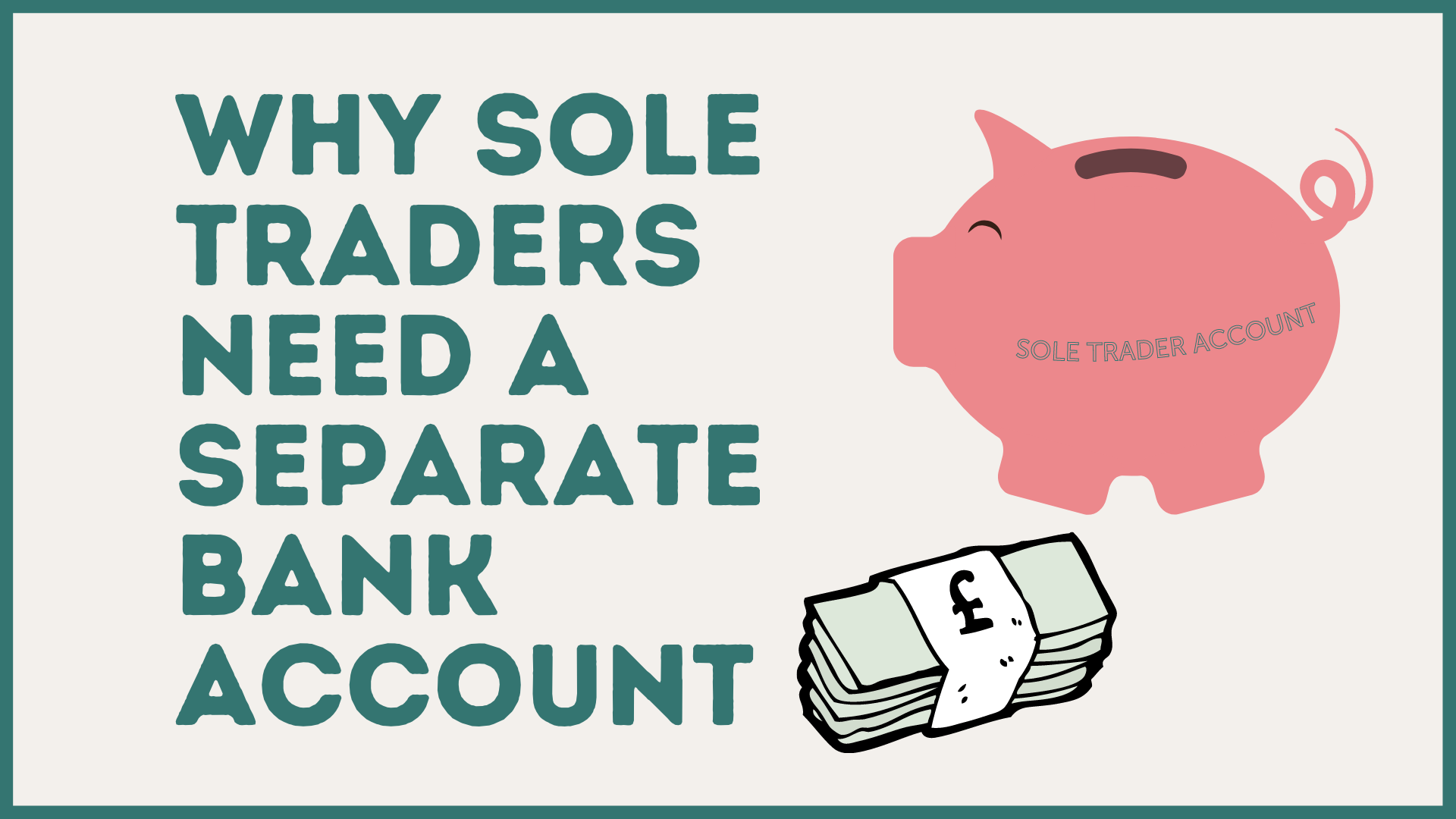If you are just about to become a sole trader, or have been one for a while, you might be wondering whether it is worth getting a separate bank account for your business. There is no legal requirement for sole traders to have a separate bank account for their business unlike Limited Companies which are required to do so. This is because HMRC views Limited Companies and the Directors as separate legal entities, whereas sole traders and their businesses are viewed as the same. Therefore a Limited Company is required to keep its bank accounts separate from the personal accounts of the directors. For more information about the differences between these two business structures read our blog.
We usually recommend that all of our sole trader clients get a separate bank account for their business. Here are some of our reasons:
1) It makes your accounts more accurate
Having a separate bank account for your business income and expenses has the obvious advantage of being able to keep any other income and private expenses separate. This will stop any chance that they could become mixed up or confused which will in turn ensure that your bookkeeping and accounts are accurate.
2) It stops you missing anything
Similarly, if all of your business expenses are in one account then you know you will not miss anything. It can be very time consuming to go through your personal account and pick out the transactions that relate to your business, so with a separate account you (or your bookkeeper) will not have to do this!
3) It helps to keep your numbers up to date
If you have your accounts separate and your bookkeeping up to date then you will have a better overview of how your business is performing.
With a personal account, you may not be able to get as clear a view of what your numbers are which could lead to making incorrect business decisions.
4) It makes HMRC inspections easier
In the event that you get an inspection from HMRC, the first thing they will look at is your business account. This means that you won’t have to hand over your personal bank statements to them in the first instance. This process is likely to be a lot more straightforward if HMRC only have one bank account to look through.
5) It makes bookkeeping in Xero easier
We can set your Xero up so that it has a bank feed running to your sole trade bank account. This will mean that we won’t see your personal transactions or need you to send in bank statements for any other account. This could also save you money as our bookkeeping service includes up to 50 transactions per month. Using a personal account is likely to put you over this!
We recommend…
Some banks may charge a monthly fee for a business bank account. You don’t necessarily need to have a specific business bank account set up, however some banks do specifiy in their terms and conditions that you cannot use a personal account for “business use”.
Some banks however do specific bank accounts for sole traders, and don’t charge a monthly fee! We particularly like this one from Starling Bank https://www.starlingbank.com/sole-trader-bank-account/
(We are not affiliated with Starling Bank)
As you can see, it makes so much sense to keep a separate bank account for your sole trade business. It will save you & your bookkeeper time and hassle and make sure that you don’t include or miss anything important from your accounts.




